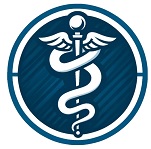Medical fellowships may add several years to your education, but the extra time and effort may be worth the investment if specializing in one subspecialty will help you realize your long-term career goals.

Fellow doctors are fully credentialed physicians who pursue further subspecialty training after graduating medical school and residency. Here you’ll discover more information on what a fellowship entails and its purpose.
What is a fellowship?
While medical school provides broad training in all branches of medicine, residency provides more focused instruction within one discipline. Residency programs typically last between two and seven years and are overseen by an attending physician who ultimately assumes responsibility for patient care; during these programs doctors-in-training are known as residents or registrars.
Residents’ duties typically include seeing patients, conducting exams and procedures under the guidance of an experienced doctor, making diagnoses, and participating in “rounds,” which involve discussions among interns and senior doctors concerning several patients at once.
Many physicians elect to continue their education after graduating residency programs by enrolling in fellowships. A fellowship is an additional training program that can lead to subspecialization within an area of medicine; those completing one are known as fellow doctors for the duration of their program; this may take the form of clinical or research fellowships as well.
How does a fellowship work?
Fellowships provide an exciting and immersive experience in an area of interest that can accelerate a career forward. However, it’s crucial that students apply only when they feel fully prepared and committed to seeing it through, according to Olivarria.
Dependent upon the type of fellowship you seek, you’ll likely need to submit a personal statement, letters of reference from professors and coworkers, transcripts and resumes as well as often a project proposal. Each program’s guidelines should outline exactly which documents must be brought, so read through them thoroughly to know which materials must be submitted.
Olivarria suggests beginning the fellowship application process early to avoid last-minute stress, with early searching of possible fellowship opportunities as recommended by Olivarria. That way, you can develop a strategic plan and save yourself any hassle later.
What are the benefits of a fellowship?
Medical fellowships provide physicians the chance to expand their expertise in an area of medicine they might otherwise miss out on during regular clinical practice, hone research skills and gain exposure to cases not encountered on a daily basis.
An expensive fellowship program may be. Physicians deciding to undertake one may need to defer income from their jobs in order to devote themselves fully to the program – which may delay paying down student loans faster.
Residents looking to pursue medical fellowships should start by finding mentors and discussing the topic with them. Familiarize yourself with the application process for fellowships; ensure you have all necessary materials like letters of recommendation and resumes ready. Furthermore, develop communication and leadership skills so that fellowship directors are impressed.
What are the disadvantages of a fellowship?
Fellowship programs take up much of your career time. They typically last three to seven years, delaying your ability to practice as an attending physician and paying back your student loans.
To qualify for a fellowship, it’s crucial that you demonstrate dedication and passion towards your desired field of study, particularly if it’s highly competitive. Furthermore, spending enough time working on research projects and extracurricular activities related to it will only strengthen your application for one.
Most fellowship applications require a personal statement outlining your goals and aptitude for the field of study in question. USMLE scores may also be an additional requirement; however, it should be kept in mind that USMLE scores should only be seen as part of your fellowship application when considering it alongside your personal statement, CV, letters of recommendation, and any other qualifications you possess.
